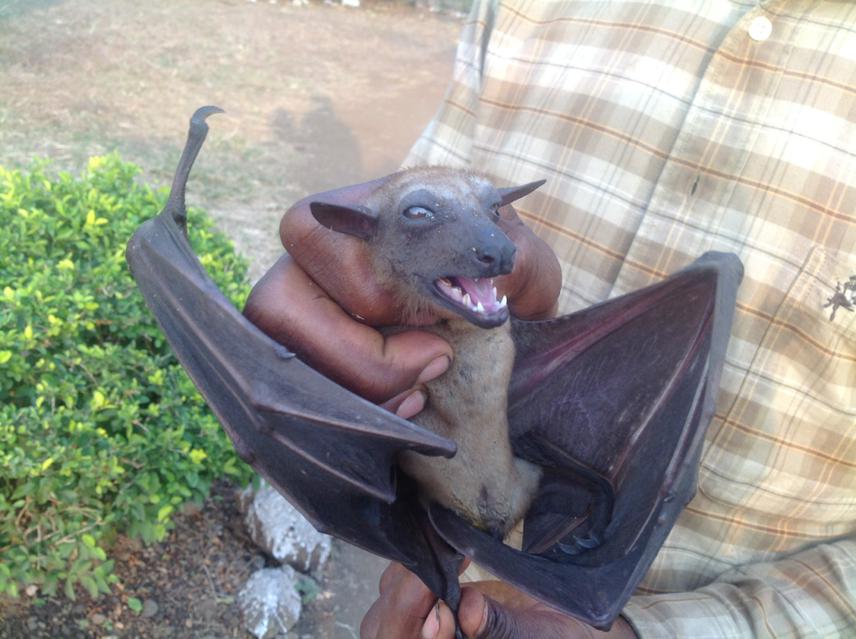Noumbissi Tenku
Other projects
To protect bat species and safeguard their habitat through sustainable cocoa farming and community sensitisation to discourage bat hunting for meat.

Captured bat under examination.
The project will map and monitor bat roosts, population sizes and species. The aim of this activity is to know current bat roosts and obtain recent information on population and species for new baseline data. This will set the benchmark against which bat population and species recovery will be monitored for project success.
The first activity will be followed by educational workshops and sensitisation campaigns; aimed at developing community-level and broader public awareness on the agro-economic and social benefits of bats in our ecosystem. This will enhance public acceptance on the need for conservation and ensure project sustainability.
The next activity will be to support and guide cocoa farmers to undertake reforestation activities as a measure of compensating for the trees they have cut down over the years for drying of cocoa; thereby destroying bat habitat. This will entail development of nurseries on farmers’ plantations with the support of volunteers and women groups; followed by planting of 200 trees per farmer. With a population of 352 cocoa farmers, there is a target to plant 70400 fruit and non-fruit trees. At maturity, these trees will reinstate lost habitat for bats as well as secure sources of food; while farmers will also get additional income from harvesting some fruits for sale. This additional income will enable farmers afford alternative sources of meat and cut their reliance on killing bats for meat.
Alongside the nursery development and tree planting exercise, the project will develop farmers’ capacity on how to reduce wood consumption for cocoa drying. This will directly address deforestation which remains the biggest impact of cocoa production. Farmers will be trained on the design, and use of wooden boxes for cocoa fermentation. This is an alternative fermentation technique that replaces the bags fermentation technique and drastically reduces the moisture content of fresh cocoa, with a direct benefit being a fall in the quantity of wood needed to dry the cocoa. In addition, this the box fermentation method ensures cocoa of higher quality which will command better prices from buyers. The higher prices will ensure an increase in farmers’ income and alleviate household poverty, while giving farmers other options for protein other than bat meat.